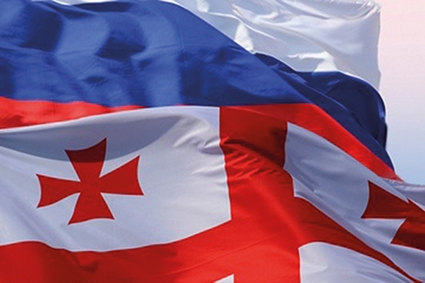Proud but Poor: Russian View of the Georgian Problem
OP-ED
Looking at the troubled Georgian-Russian relations particularly of the past 30 years (since 9 April, 1989) one could easily see that a certain deadlock has been reached.
Both sides blame each other for various actions in the past. Both might be right as, at times, aggressive statements, incorrect political moves, etc. truly damaged and caused a rift in bilateral relations since the break up of the Soviet Union.
However, blaming all the damage in relations on separate statements and actions of various Georgian and Russian politicians would be incorrect. We deal here with a pure geopolitical process which lies behind the Georgian-Russian dilemma: West-Russia competition and Georgia's place as one of the layers in this struggle.
Russian politicians as well as analysts in the past couple of weeks have paid large attention to what is going on in Georgia and what is generally wrong between Russia and its southern neighbour.
The conflict is overwhelmingly cast as a result of western manipulation and Georgia's political class' ineptitude to act independently and without emotionally-driven masquerades. Again, Georgian politics are often emotionally driven, but it is also clear that an overwhelming majority of the Georgian population is unwilling to tolerate a pro-Russian Georgian government based on past previous experiences with Russia (primarily, Russian recognition of Abkhazia and Tskhinvali region).
What the Russian view lacked these days and, one could even say, for the last couple of decades, is what can be done to improve the situation. And, this is where the trouble starts as Moscow has not really shown any signs of a long-term foreign policy towards the South Caucasus. Russian efforts in the region have so far been limited only to countering Western economic and military intrusion mainly through a military build-up in Abkhazia and Tskhinvali region.
At times its seems that Moscow is content as it has essentially reached its major strategic imperatives such as preventing Georgia's NATO and EU membership plans. Even while controlling major passes into the South Caucasus, Moscow still needs at least Georgia to be neutral or Russia-friendly. It is important for Moscow because of Russia's historically low ability to integrate and properly control the North Caucasus. Moreover, without Georgia, Russia's ability to control the South Caucasus itself is at best untenable.
Thus, military build up might serve only as a tool to defend your positions for a certain period of time. After that, robust diplomatic, economic and cultural initiatives are needed to prop up geopolitical interests. This is what Russia has not been doing with Georgia for the past several decades, since the break-up of the Soviet Union.
In other words, Georgians do not see why Russia can be attractive enough to be their long term ally. Those who depend on Russian money (through Russian tourists or exports to Russia) do so out of necessity which one day can easily change and those same people might make good business from European tourists and via exports to the European market.
In fact, one might say that the entire Russia foreign policy for more than 20 years has been based more on prevention of western influence in the post-Soviet space than on an actual long-term perspective of how to improve Russian positions in the region.
There are plenty of reasons why Russians did not do this. Economic troubles of the country prevent it from being attractive in foreign policy. But there is also an understanding that Georgia should not really expect any Russian benevolence if pro-western aspirations are not abandoned and more importantly independence of Abkhazia and Tskhinvali region is not recognized by Tbilisi.
A certain "imperial aloofness" is also present in various Russian discussions on Georgia. The country might always be proud, but it will always remain poor unless it enjoys the benefits of Russia's economic space. Another view is that considering the size of Georgia, the unstable region and troubles in Europe, as well as the refocusing of US geopolitical attention to Asia-Pacific to counter China, Georgia's western aspirations will be doomed eventually forcing Georgia into Russian hands. This scenario is not entirely groundless, but it still is based on Russia's future as a global power which will withstand all the vagaries of the geopolitical competition between with the west, and between America and China.
This "imperial aloofness" nevertheless distances the Georgian people from the Russian world and prevents Moscow from having a long term foreign policy aimed at improving relations with Georgia without the demands to recognize Abkhazia and Tskhinvali region. One could even suggest that Moscow, by recognizing Georgia's breakaway territories, has in fact limited its options in diplomatic games with Tbilisi. No one in Georgia now believes that Moscow would consider the handing over of Abkhazia and Tskhinvali region in exchange for Tbilisi's refusal to join NATO and the EU: a striking contrast to pre-2008 when many believed this could happen.
By Emil Avdaliani
Photo Source - Vestnikkavkaza












